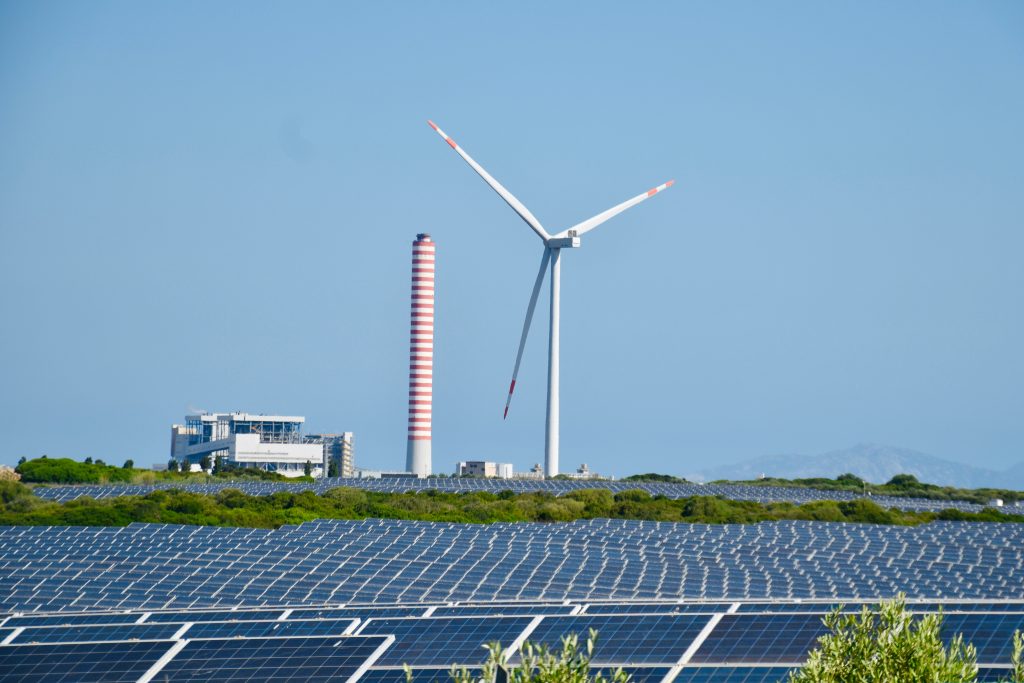Elon Musk’s Influence on Renewable Energy and Internet Access Amid Political Divide
In a rapidly evolving political landscape, the intersection of technology and policy continues to be a hot topic of discussion. One of the most prominent figures in this arena is billionaire entrepreneur Elon Musk, whose ventures have sparked both admiration and controversy. Recently, Musk has been in the spotlight for his discussions around renewable energy and internet access, particularly in the wake of natural disasters. Republican presidential candidate Donald Trump revealed that he had spoken with Musk about providing Starlink internet access to areas affected by disasters, highlighting the potential of private sector solutions in times of crisis. This conversation underscores the ongoing debate surrounding government subsidies for electric vehicles (EVs) and renewable energy initiatives, which many Republicans oppose in favor of a free-market approach. As the public continues to seek alternatives to traditional energy sources, Musk’s influence in the renewable energy sector remains significant. His companies, such as Tesla and SpaceX, have pushed the boundaries of innovation, offering new technologies that promise to reshape the way we think about energy consumption and connectivity. However, the path forward is not without its challenges. The political divide surrounding government intervention in the energy market raises questions about the future of sustainable practices and the role of private enterprises in achieving these goals. In addition, the reliance on technology like Starlink for internet access in disaster-stricken areas highlights the urgent need for robust infrastructure that can withstand environmental challenges. As communities look for solutions to persistent issues like climate change and connectivity, the role of influential figures like Musk will continue to be scrutinized. The ongoing dialogue about how best to balance private innovation and public policy will be crucial in shaping the future of energy and technology in America.
Tags: Disaster Relief, Elon Musk, Musk, Political Divide, Renewable Energy, Starlink
UAW Files Labor Charges Against Trump and Musk for Intimidation
In a significant move reflecting ongoing tensions between labor unions and high-profile business leaders, the United Automobile Workers (UAW) union has filed federal labor charges against former President Donald Trump and Tesla CEO Elon Musk. This action comes in response to a livestreamed conversation where both figures allegedly made comments that were interpreted as threats towards UAW members. The union argues that the remarks made by Trump and Musk during their discussion could be seen as intimidating, undermining the rights of workers to organize and engage in collective bargaining.
UAW President Shawn Fain expressed strong condemnation of the comments, stating, “When we say Trump stands against everything our union stands for, this is what we mean. Donald Trump will always side against the working class.” This statement underscores the union’s belief that Trump’s past and present actions are detrimental to labor rights and protections.
The union’s legal complaints have been directed to the National Labor Relations Board, echoing concerns over the influence that powerful figures like Trump and Musk may have on labor dynamics within the automotive industry. The UAW emphasizes that such intimidation tactics are not just harmful to individual workers but also threaten the integrity of union representation as a whole.
The livestream, which touched on various topics, saw Trump praise Musk for firing employees involved in strikes. This endorsement of aggressive management tactics has raised alarms among labor advocates, who view it as an attack on the fundamental rights of workers to protest and demand better working conditions.
This situation highlights a broader conflict between labor unions and corporate leaders, particularly in industries undergoing significant transformations, such as the automotive sector amidst the rise of electric vehicles. As the UAW takes a stand against what it perceives as bullying from influential figures, it reiterates its commitment to protecting workers’ rights against any form of intimidation.
In a climate where labor relations are becoming increasingly contentious, the UAW’s actions serve as a reminder of the ongoing struggle for workers’ rights and the need for solidarity among union members. As the automotive industry evolves, the implications of this conflict may resonate far beyond the immediate parties involved, potentially influencing labor relations across various sectors. The UAW’s filing could also spark further discussions about the role of leadership in shaping labor policies and the responsibilities that come with such influence.
As this story develops, it will be crucial to monitor the responses from the National Labor Relations Board and the broader implications for labor relations in the United States. With the growing visibility of labor issues and the increasing assertiveness of unions, the dynamics between corporate power and worker rights are likely to remain at the forefront of public discourse.
Tags: Intimidation, Labor Rights, Musk, Trump, Trump Musk, UAW
Technical Glitches Mar Elon Musk’s Interview with Donald Trump
In an anticipated yet chaotic interview, Elon Musk’s recent conversation with former President Donald Trump on the platform X has stirred up controversy and left audiences bewildered. What was supposed to be a groundbreaking discussion quickly devolved into a series of technical issues, which Musk attributed to a cyber attack.
The two-hour dialogue was supposed to cover a range of topics, from Trump’s controversial policies to Musk’s vision for the future of technology. However, the event started on a rocky note, as Musk claimed that a Distributed Denial-of-Service (DDoS) attack had overwhelmed the servers, preventing him from launching the stream on time. Experts, however, have questioned this assertion, suggesting that such a technical issue might not have been caused by external interference as Musk claimed.
The interview’s content itself was less than revelatory. Trump, who is currently a Republican presidential candidate, revisited familiar themes, such as his views on illegal immigration and the need to cut government regulations. He even took the opportunity to discuss his recent assassination attempt, a topic that has garnered significant media attention. As the former president spoke, he praised Musk for his controversial decision to fire workers who sought to strike, a statement that has drawn ire from labor unions.
The United Auto Workers (UAW) union has since filed federal labor charges against both Trump and Musk, accusing them of illegally threatening workers during the interview. UAW President Shawn Fain voiced concerns over the implications of their conversation, suggesting it undermined workers’ rights and safety. This development has sparked a broader discussion about the responsibilities of influential figures in the tech and political landscapes.
Audience reactions to the interview have been mixed. Some viewers expressed disappointment over the lack of new information, with many noting that the dialogue felt repetitive and uninformative. Critics have pointed out that the conversation seemed more like a platform for Trump to air his grievances than a meaningful exchange of ideas. Furthermore, the technical difficulties and Musk’s defensive posture regarding the DDoS claims have led some to question the credibility of the event.
Musk’s decision to host Trump on his platform has also raised eyebrows. The intertwining of tech and politics has become increasingly contentious, especially in light of past controversies involving misinformation and the handling of user data. Musk’s actions have prompted discussions about the ethical implications of allowing political figures to engage with audiences on social media platforms, especially when those figures have a history of divisive rhetoric.
In the aftermath of the interview, discussions surrounding labor rights, technology’s role in politics, and the responsibilities of platform owners have taken center stage. As figures like Musk and Trump continue to exert influence, questions about accountability and the impact of their words have never been more pertinent.
Ultimately, this interview serves as a microcosm of the broader issues at play in today’s political and technological landscape. As audiences seek clarity and insight, events like these remind us of the complexities and challenges that come with the intersection of technology and politics.
Tags: cyber attack, interview, Labor Rights, Musk, Trump, Trump Musk interview



